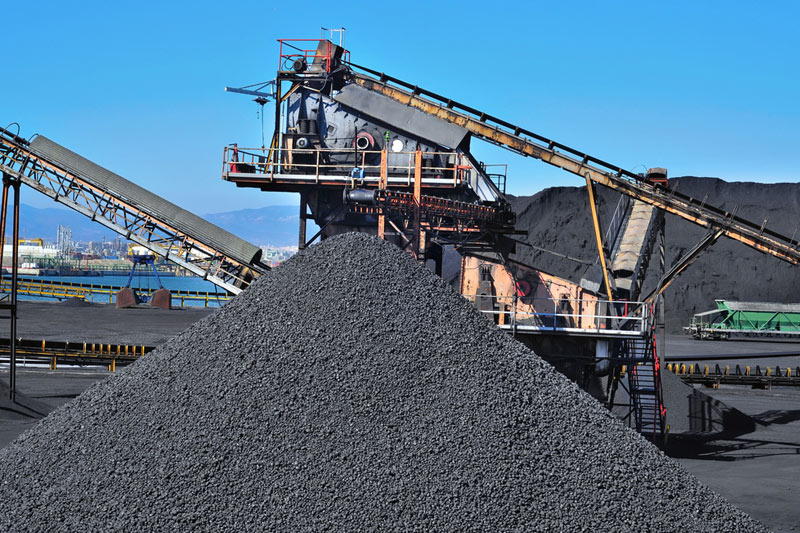(Repeats with no changes to text)
By Clyde Russell
LAUNCESTON, Australia, Sept 24 (Reuters) - -
Can the coal industry win a public relations battle, and does it even matter if it can't?
There's no shortage of people and organisations claiming that coal is increasingly embattled and is about to go the way of whale oil and wood as a fuel of the past.
Does this mean that the Minerals Council of Australia's new, and seemingly costly, campaign in support of the fuel is simply raging against the inevitable, or does it herald a new front in the war between coal miners and anti-coal environmentalists?
There's little doubt that coal has an image problem, increasingly so in developed countries where the fuel's major contribution to climate change is well-publicised and understood by the majority of the public.
One of the top producers has even gone so far as to say coal is on the losing side, and not just because prices have dropped by almost two-thirds in the current four-year losing streak.
BHP Billiton (LONDON:BLT) BHP.AX president of coal, Mike Henry, told a function in Brisbane on Sept. 18 that while the current coal market was challenging, the longer-term outlook remained strong.
But he also said coal was losing the public relations fight and the industry needed to do more to take on both those who wanted to destroy the coal industry and those that didn't believe in climate change.
"It would be fair to say that as we stand here today, in the court of public opinion, the 'no-coal' camp has been more effective. Anti-coal activism has been building momentum over many years," Henry was quoted as saying by the Australian Financial Review.
"We can only hope to secure balanced support for the industry if we step up and help improve the quality of debate and the depth of understanding about what we do, why we do it - and how important it is," he said.
Henry's comments came shortly after the Minerals Council, the advocacy body for the Australian mining industry, launched its campaign to convince the public of coal's merits and future role.
Using the tagline "Coal is amazing," the council put up a website, www.littleblackrock.com.au, that is filled with statistics supporting the view that coal is, as recently ousted Australian prime minister Tony Abbott put it, good for humanity.
The coal industry in Australia paid some A$38 billion ($26.6 billion) in company tax and royalties in the seven years to the 2013-14 fiscal year, while employing some 41,000 people, according to the website.
New coal power plant technology will also be able to cut carbon emissions by 40 percent compared to older units, is another claim on the website.
But judging by the reaction on social media, the council's campaign has done little to sway those opposed to the fuel, with a Twitter (NYSE:TWTR) search of the hashtags #littleblackrock and #coalisamazing showing the overwhelming majority of responses range from dismissive to derisive.
"#coalisamazing: so much that $2.6 trillion now being divested from fossil fuels," was one recent tweet, with another reading: "#coalisamazing: it can make millions of people sick even from thousands of miles away, it can change the whole climate of a planet."
But winning over the dedicated anti-coal activists was never likely, and probably not what the council was aiming at anyway.
It's the so-called silent majority that are the target for the campaign, aiming to convince them that coal is still a viable, and vital, industry for Australia, providing jobs, government revenue and electricity that's cheaper than alternatives.
BOTH SIDES MISS THE MARK
There are some problems with the council's campaign, namely that it skirts around the role of coal in emissions, and doesn't realistically set out just how quickly, or not, the world's coal-fired generators can be replaced with the "high efficiency, low emissions" ultra super-critical units.
It also claims that carbon capture and storage (CCS) is now a commercial reality, when there is only one commercial scale plant using it, Canada's SaskPower, and even then it was only feasible with generous government subsidies.
If the industry really wishes to be taken seriously, how about a discussion on the actual costs of building new plants with CSS, or the cost of retro-fitting existing units, and how this would compare to generating electricity using natural gas, nuclear or renewables such as wind and solar?
One interesting part of the website is the outlook section, where the council cites International Energy Agency data estimating that the world will use 1 billion tonnes more of coal more by 2019 it does today, taking the total to more than 9 billion tonnes.
It also states that there is more coal-fired capacity in the pipeline than any other fuel, mainly in the developing world led by India and China.
If these figures do prove accurate it will mean that coal will win the real battle, even if it does lose the public relations war in developed nations.
Just as the industry may have scored an own goal with its campaign to win hearts and minds, the anti-coal lobby risk doing the same if all they accomplish is the ruination of the coal industry in developed countries while it flourishes in developing nations.
What would be a better tactic for the anti-coal lobby? Trying to close mines in Australia or trying to force governments across the globe to legislate CCS targets?
While coal is most likely in the sunset phase of its dominance of the world's energy, killing it off completely won't be easy, and perhaps forcing it be used more cleanly, especially in the developing world, is a better idea.
<^^^^^^^^^^^^^^^^^^^^^^^^^^^^^^^^^^^^^^^^^^^^^^^^^^^^^^^^^
GRAPHIC on coal prices
http://link.reuters.com/rug65w
^^^^^^^^^^^^^^^^^^^^^^^^^^^^^^^^^^^^^^^^^^^^^^^^^^^^^^^^^>
(Editing by Joseph Radford)
